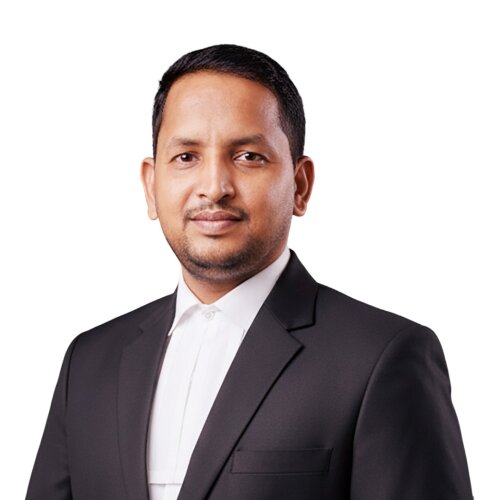Best Collaborative Law Lawyers in Ayodhya
Share your needs with us, get contacted by law firms.
Free. Takes 2 min.
Free Guide to Hiring a Family Lawyer
List of the best lawyers in Ayodhya, India
About Collaborative Law in Ayodhya, India:
Collaborative Law is a legal approach that focuses on resolving disputes in a non-adversarial manner. In Ayodhya, India, Collaborative Law emphasizes voluntary participation, open communication, and cooperation between parties to reach a mutually beneficial agreement. This method is particularly useful in family law cases, such as divorce, child custody, and property division.
Why You May Need a Lawyer:
You may need a lawyer in Collaborative Law cases to ensure that your rights are protected, to provide legal advice and guidance throughout the process, and to help you navigate complex legal procedures. A lawyer can also help you negotiate with the other party and ensure that the final agreement is fair and legally-binding.
Local Laws Overview:
In Ayodhya, India, Collaborative Law is governed by the Indian legal system. Some key aspects of local laws relevant to Collaborative Law include the Indian Evidence Act, the Hindu Marriage Act, and the Indian Divorce Act. These laws outline the rights and responsibilities of parties involved in family law disputes and provide guidelines for resolving them through collaborative means.
Frequently Asked Questions:
Q: What are the benefits of using Collaborative Law in Ayodhya, India?
A: Collaborative Law offers a more amicable and cost-effective approach to resolving disputes compared to traditional litigation. It allows parties to have more control over the outcome and promotes cooperation rather than confrontation.
Q: How long does the Collaborative Law process typically take?
A: The length of the Collaborative Law process varies depending on the complexity of the case and the willingness of both parties to cooperate. It can range from a few months to over a year.
Q: Can I switch from Collaborative Law to litigation if needed?
A: Yes, parties involved in Collaborative Law can choose to switch to litigation if they are unable to reach a resolution through collaborative means. However, this may result in additional costs and delays.
Q: What happens if one party does not comply with the Collaborative Law agreement?
A: If one party does not comply with the Collaborative Law agreement, the other party can seek legal remedies through the Indian court system to enforce the terms of the agreement.
Q: Is Collaborative Law confidential in Ayodhya, India?
A: Yes, Collaborative Law proceedings are confidential in Ayodhya, India. This means that discussions and negotiations conducted during the process cannot be used as evidence in court.
Q: What are the roles of the lawyers in Collaborative Law cases?
A: Lawyers in Collaborative Law cases act as legal advisors, negotiators, and advocates for their clients. They help parties understand their rights, assist in negotiations, and ensure that the final agreement is fair and legally-binding.
Q: How are decisions made in Collaborative Law cases?
A: In Collaborative Law cases, decisions are made by the parties themselves, with the guidance and assistance of their lawyers. The goal is to reach a mutually acceptable agreement that meets the needs and interests of both parties.
Q: Can children be involved in Collaborative Law cases?
A: Yes, children can be involved in Collaborative Law cases, especially in matters related to custody and visitation. Their well-being and interests are considered during the negotiation process to ensure a child-focused resolution.
Q: How much does Collaborative Law cost in Ayodhya, India?
A: The cost of Collaborative Law in Ayodhya, India varies depending on the complexity of the case, the number of meetings needed, and the fees charged by the lawyers involved. However, it is generally more cost-effective than traditional litigation.
Q: Are the outcomes of Collaborative Law cases legally-binding?
A: Yes, the outcomes of Collaborative Law cases in Ayodhya, India are legally-binding. Once an agreement is reached and signed by both parties, it can be enforced through the Indian court system if necessary.
Additional Resources:
For more information on Collaborative Law in Ayodhya, India, you can contact the Collaborative Law Association of India (CLAI) or consult with a local law firm specializing in family law and dispute resolution.
Next Steps:
If you are considering Collaborative Law for your legal dispute in Ayodhya, India, the first step is to consult with a qualified lawyer who can assess your case and provide guidance on the best course of action. Your lawyer can help you understand the Collaborative Law process, negotiate with the other party, and work towards a mutually acceptable agreement. It is important to approach Collaborative Law with an open mind, willingness to cooperate, and commitment to reaching a fair resolution for all parties involved.
Lawzana helps you find the best lawyers and law firms in Ayodhya through a curated and pre-screened list of qualified legal professionals. Our platform offers rankings and detailed profiles of attorneys and law firms, allowing you to compare based on practice areas, including Collaborative Law, experience, and client feedback.
Each profile includes a description of the firm's areas of practice, client reviews, team members and partners, year of establishment, spoken languages, office locations, contact information, social media presence, and any published articles or resources. Most firms on our platform speak English and are experienced in both local and international legal matters.
Get a quote from top-rated law firms in Ayodhya, India — quickly, securely, and without unnecessary hassle.
Disclaimer:
The information provided on this page is for general informational purposes only and does not constitute legal advice. While we strive to ensure the accuracy and relevance of the content, legal information may change over time, and interpretations of the law can vary. You should always consult with a qualified legal professional for advice specific to your situation.
We disclaim all liability for actions taken or not taken based on the content of this page. If you believe any information is incorrect or outdated, please contact us, and we will review and update it where appropriate.








